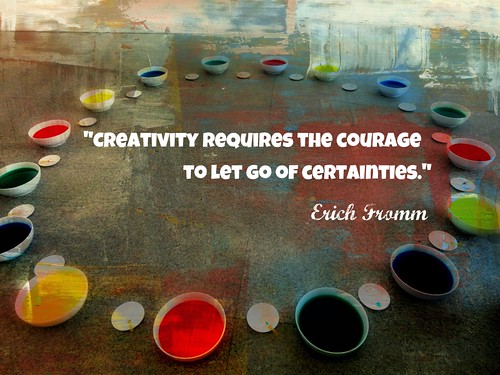(Another in the continuing series of quotes to start the week.)
In one of the strange coincidences that makes our world so interesting, on this date 115 years ago two great but very different innovators — Walt Disney and Werner Heisenberg — were born.
German physicist Heisenberg (5 December 1901 – 1 February 1976) received a Nobel Prize as one of the founders of quantum mechanics, and formulated the principle of uncertainty that bears his name. That principle refers to our inability to know all the complementary states of a particle at the same time; specifically, Heisenberg said that as we determine the position of a particle with higher and higher precision, our knowledge of its momentum loses precision.
The uncertainty principle is a bit different from the “observer effect” in which our efforts to measure something end up affecting the thing we’re measuring — something that’s been noticed in everyday life, as well as in particle physics — but Heisenberg wrote about the observer effect in Physics and Philosophy:
We have to remember that what we observe is not nature herself, but nature exposed to our method of questioning.
That reminded me of a story I once heard about Walt Disney (5 December 1901 – 15 December 1966), whose creation of Mickey Mouse and all that followed — cartoons, movies, theme parks — has been well-chronicled.
As I heard it from Dr. Howard Hendricks at a National Youthworkers’ Convention many years ago, when Disney was in school his class was given an assignment to draw a picture of flowers. Disney drew his flowers with faces on them, and when the teacher told him that flowers didn’t have faces on them he told his teacher, “Mine do.”
Something of an uncertainty principle of creativity? (Image: “Creativity,” by Denise Krebs, on Flickr under Creative Commons.)
That story about Disney may be apocryphal — as I heard Russell Ackoff say once, “An apocryphal story is one that may not be true, but ought to be” — but if it’s true it seems to me a great example of Heisenberg’s quote. Disney was not observing nature itself, but his observation of nature was affected by what he brought to it: a sense of playfulness, a degree of whimsy, that could not be extinguished by a teacher’s admonition. To be creative, we have to allow ourselves to play and trust more to our inner vision than to what our senses (or other people) might be telling us.
The paths Heisenberg and Disney took in their lives were quite different — one the path of hard science, one the path of business and entertainment — but both gave us new ways of seeing the world.
And as you look at the world this week, I hope you can see its wonders in exciting new ways — and let yourself play.
___
P.S. A reminder: My completely-revised-and-updated edition of Quality Education has been out for almost a week, and so far it’s gone as high as number 13 on Amazon’s list of “Education Policy and Reform” titles. It’s available on Kindle and in Paperback. I’d be pleased if you’d check it out, and share the link with a friend!









